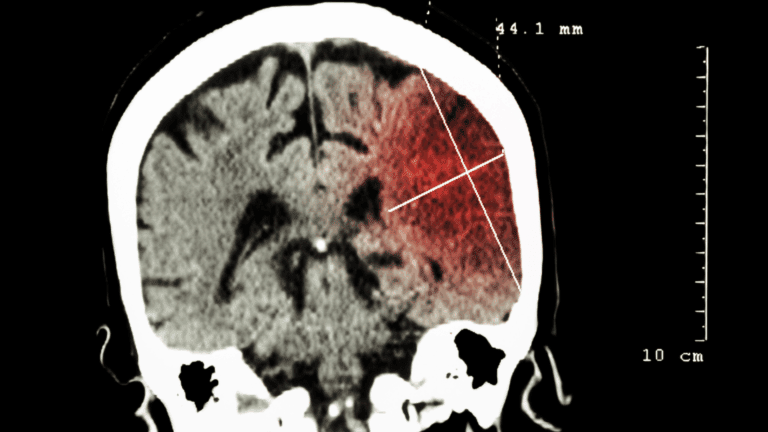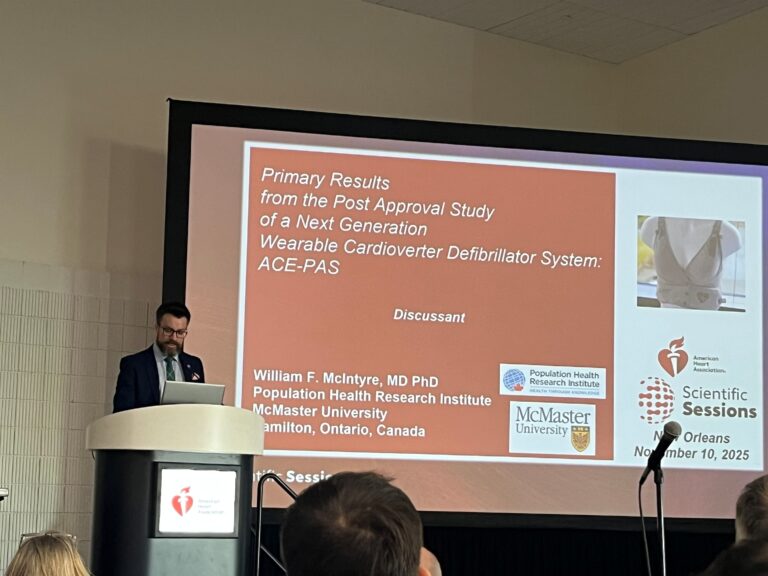
Philip Joseph
PHRI is one of six hubs of research in the new Canadian Heart Function Alliance (CHF Alliance) network launched today to tackle the challenges of heart failure – a common condition that is often fatal, and on the rise in Canada. A total of $32 million has been invested in the alliance to start, including $5 million from the Canadian Institutes for Health Research (CIHR) in partnership with Heart and Stroke, Mitacs, and National Heart, Lung, and Blood Institute.
A translational clinical trials centre at PHRI will explore whether novel approaches to treatment – such as anti-inflammatory drugs, supplementation with a vitamin (thiamine), and reducing weight in obese people with heart failure – will be beneficial, in addition to currently proven treatments.
Some of the largest and most comprehensive databases in the field worldwide – PURE and G-CHF studies – developed and housed at PHRI, will be probed by CHF Alliance members, to better understand heart failure using big data and advanced analytics such as artificial intelligence.
“We are expected to make transformative discoveries in the next 5 years,” says PHRI Executive Director Salim Yusuf, one of the CHF Alliance’s co-founders.

Salim Yusuf
Another important initiative in the alliance is PHRI’s randomized trial, COLT-HF, with 2500 participants in 7 countries expected, to investigate if colchicine and thiamine can affect outcomes for people with ischemic heart failure.
The COLT-HF trial will be led by PHRI Investigator Philip Joseph. ““We look forward to collaborating with so many diverse investigators to identify new ways to improve survival and quality of life for those living with heart failure,” says Joseph.
The alliance involves 132 investigators (42% women; two dozen early-career investigators) doing 23 research projects.
PHRI Senior Scientist Eva Lonn, Medical Director of the Heart Failure Program at McMaster, notes that “heart failure accounts for substantial heath care costs; the most common cause of hospital admission for people 65 and over in Canada is decompensated heart failure which requires immediate medical treatment.”

Eva Lonn
Yusuf, Joseph and Lonn hold key leadership roles in the CHF Alliance. PHRI Senior Scientists Sonia Anand, Guillaume Pare and Shrikant Bangdiwala, and PHRI Scientists Darryl Leong and Michael McGillion, PHRI Investigator Jorge Wong, and Associate Investigators Russ De Souza and Jeremy Petch are also involved in projects and roles within the alliance.
Read breakdown of specific PHRI-led components of CHF Alliance.
Outside of PHRI, research hubs within the CHF Alliance are:
- Health systems research out of the University of British Columbia and the BC Ministry of Health, in collaboration with Western University, McMaster University, University of Montreal, and University of Sherbrooke, will strive to improve the quality and access of patients to optimal heart failure care.
- Virtual care research at Western University in London, Ontario, in a patient-driven collaboration, will build on digital health and remote monitoring programs to improve access to optimal care for patients with limited mobility and living in remote areas, and to improve the efficiency of the health care system.
- A national cardiovascular network led by the SickKids Hospital in Toronto, Ontario will strive to discover age-specific therapies or drugs to treat cardiomyopathy and congenital heart disease in young children and teenagers – the leading causes of childhood heart failure – and will work with a world-class group interested in improving the care of adults with congenital heart disease and/or pulmonary hypertension out of the University of Ottawa.
- Researchers at the University of Saskatchewan, working with Indigenous Elders and Knowledge Holders will develop Indigenous led approaches to improving the diagnosis and care of heart failure in Indigenous peoples.
Medical and patient-focused co-leads
Researchers at the Université de Montréal will help develop and co-ordinate the activities of CHF Alliance, whose Scientific Director is Jean Rouleau, Professor of Medicine, Université de Montréal, and a cardiologist at Montreal Heart Institute.
“Together we will investigate how to extend the lifespan and improve quality of life for the 20% of Canadians who get heart failure,” says Rouleau. “I am excited by the scope and breadth of the medical expertise and the lived experience of patients within our alliance.”
The CHF Alliance’s co-Scientific Director is Marc Bains, a person who has lived with heart failure and cofounder of HeartLife Foundation – a national non-profit organization advocating for heart failure patients and caregivers.
“The CHF Alliance is patient-driven, encompassing children to seniors, rural to urban communities,” he notes. The alliance involves 11 patient/caregiver partners and 13 Indigenous partners.
Other CHF Alliance partners include: Canadian Cardiovascular Society (CCS); Canadian Donation and Transplantation Research Program (CDTRP); Cardiac Arrhythmia Network of Canada (CANet); and Centre of Excellence on Partnership with Patients and the Public (CEPPP).




